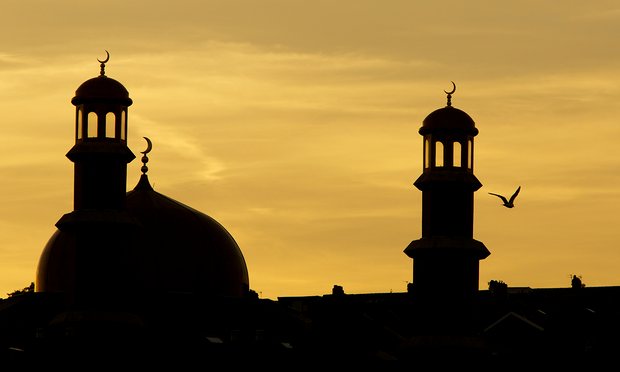
The minarets of the Masjid E Tauheedul in Blackburn, UK. During Ramadan, Muslims fast between sunrise and sunset.
London, 29 Sya’ban 1437/05 June 2016 (MINA) – Muslims in the northern hemisphere face the most challenging Ramadan for more than 30 years, with long summer days creating the shortest possible window for breaking their daily fast.
The Islamic holy month, which is expected to begin on Monday, straddles the summer equinox this year, meaning early dawns and late sunsets. The dates of Ramadan, which are determined by the moon, move forward by 10 or 11 days each year in a 33-year cycle.
During Ramadan, Muslims fast between dawn and sunset, abstaining from food, drink, smoking and sex. In the depths of winter, the daily fast can be as short as eight hours, compared with more than 20 hours in some places this year.
“We had a taste of this last year, but this year it’s even more challenging,” said Ibrahim Mogra, assistant general secretary of the Muslim Council of Britain, theguardian.com reported, as quoted by Mi’raj Islamic News Agency (MINA).
Also Read: Spanish Steel Manufacturing Ends Trade with Israel Following Public Pressure
“But this is all part and parcel of the experience, and most Muslims take it in their stride. Maybe a few more will take advantage of the exemptions available to the elderly, frail and those on medication.”
Pregnant and menstruating women, and children who have not hit puberty, are also exempt from fasting.
Muslims in the Scottish Highlands and islands face the longest fasting period in the UK. “In the Highlands, the light never really goes – it’s dusk, rather than complete darkness. We still have to go about our lives, so it can be tough,” said Waheed Khan, a hospital doctor and trustee of the Inverness Masjid, the most northerly mosque in the UK.
“But Muslims are motivated to fast. Thinking about it seems difficult, but doing it is fine,” he added.
Also Read: International Criminal Court Hit by Cyberattack
Inverness is home to a few hundred Muslims, although numbers fluctuate with short-term employment contracts in the NHS and other industries. A handful of Muslims live further north, in Shetland. “One of the challenges is to make a [Ramadan] timetable for them,” said Khan.
Many employers make special allowances for staff who are fasting, allowing shifts to be moved earlier in the day when energy levels are higher and giving people time out to pray.
“Lots of Muslims save up their holidays so they don’t have to work for at least part of Ramadan,” Mogra said. “And these days people have better choices – slow-release energy foods, for example – which make them better equipped.”
The NHS, one of the biggest employers of Muslims in the UK, said trusts determined policy individually in accordance with the Equality Act. “The NHS provides a wide range of adjustments for Muslims and other staff,” said a spokesperson. Good practice included accommodating requests for shift changes and other adjustments to the working day, they added.
Also Read: Norway’s Largest Pension Fund Divests from Israel-Linked Companies
Extra pressure for young Muslims
Ramadan coincides this year with school exams, prompting headteachers to push for Muslim pupils to be exempted from fasting. “There is no doubt that Ramadan falling during the exam season will put extra pressure on young Muslims, whatever decision they make, especially with the length of the fast over the next few years,” said guidance from the Association of School and College Leaders.
“Young Muslims and families, particularly those sitting exams this summer, will need to balance their obligations as Muslims with their studies and the importance of examinations for their future, noting that the pursuit of education is also a religious and moral duty for Muslims of both genders.”
Also Read: France Reiterates Plan to Recognize Palestinian State
The exam regulator, Ofqual, declined to change the exam timetable to accommodate Ramadan.
Muslims in the UK are expected to break last year’s £100m record of charity donations. Zakat, or charitable giving, is one of the five pillars of Islam and required for Muslims; sadaqah is additional voluntary charity.
“As Muslims, we believe that the worth of donations is multiplied during Ramadan,” said Othman Moqbel, chief executive of Human Appeal, one of the fastest-growing charities in the UK – annual donations to it have risen from £5m to £30m in the past five years.
About half of all gifts to Human Appeal are made during Ramadan. As well as aid and emergency programmes in 25 countries, the charity is involved in food banks, homeless shelters, mental health and domestic violence projects in the UK.
Also Read: Corsican Assembly Recognizes State of Palestine, Condemns Israeli Aggression in Gaza
“Charity begins at home and the community which gives so generously to us deserves something in return,” said Moqbel. (T/R07/R01)
Mi’raj Islamic News Agency (MINA)
Also Read: Swiss Authorities Order Gaza Humanitarian Foundation to Comply with Law







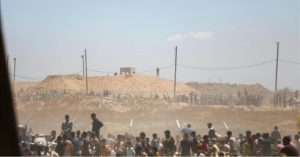





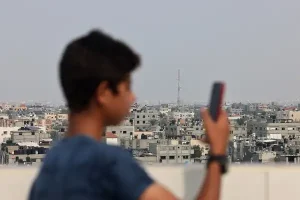

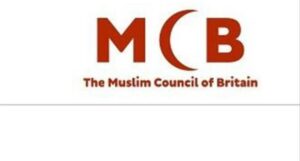

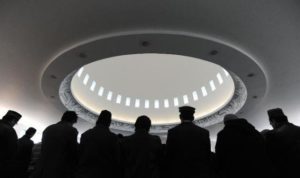





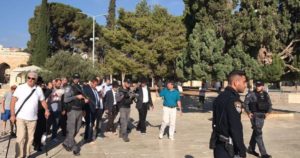





 Mina Indonesia
Mina Indonesia Mina Arabic
Mina Arabic